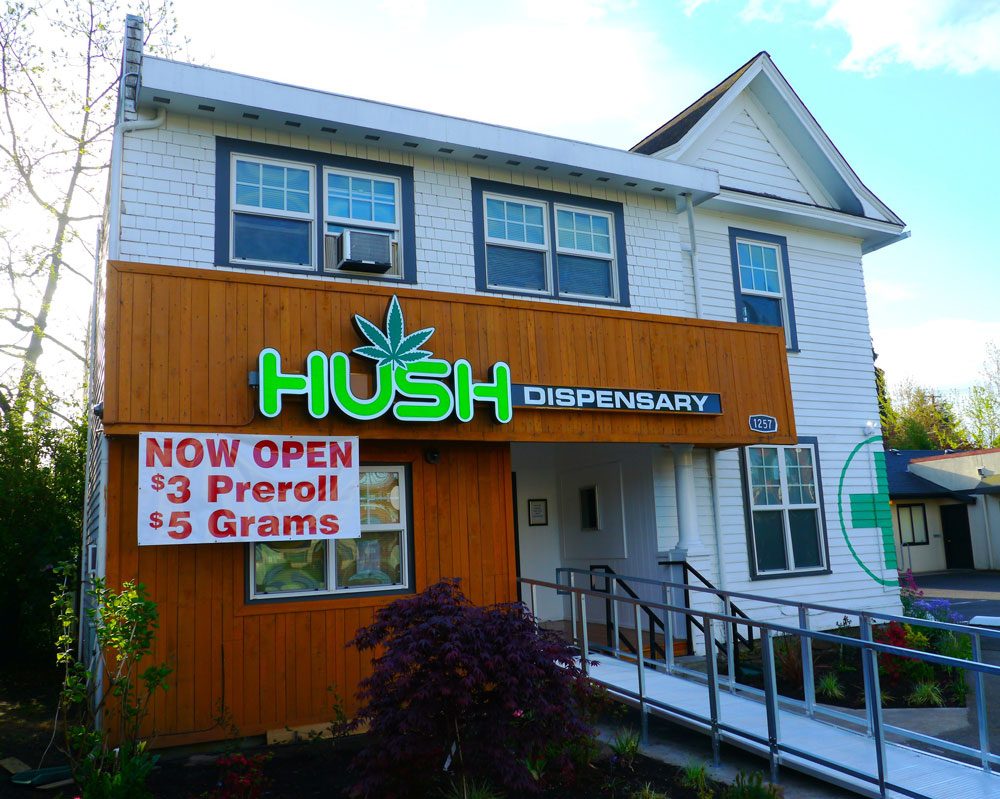
The U.S. House easily passed legislation Wednesday that would help marijuana businesses in states where they are legal to open bank accounts, get business loans and access other types of financial services.
Supporters said the bill, called the Secure and Fair Enforcement Banking Act or SAFE Banking Act, would keep communities safe by preventing marijuana businesses from operating on a cash basis. Cash-only businesses can attract thieves and make it harder for law enforcement to monitor financial transactions.
“This bill is about public safety, accountability and respecting states’ rights,” said Rep. Ed Perlmutter, a Colorado Democrat and co-author of the legislation, in remarks on the House floor before the vote. Perlmutter first introduced a version of the bill in 2013.
While the legislation was backed mostly by Democrats, it did garner bipartisan support: 229 Democrats, 91 Republicans and one independent voted for the bill. One Democrat joined 102 Republicans voting against it.
North Carolina Rep. Patrick McHenry, the top Republican on the House Financial Services Committee, opposed the legislation, calling it a half-answer to the larger problem of marijuana legalization.
“We owe it to our constituents, and the public, to have a serious debate on the underlying issue,” he said on the House floor. McHenry also said the legislation leaves several questions unanswered, such as whether it will allow drug cartels to access the banking system.
Banks and credit unions that serve the marijuana industry currently risk prosecution because federal law classifies the plant as a dangerous drug. The House bill and companion legislation in the Senate would shield financial institutions from federal penalties, giving banks and credit unions the go-ahead to serve marijuana businesses in more than 30 states where medical or recreational marijuana sales are legal.
While marijuana businesses have since 2014 been able to access limited banking services thanks to guidance from the U.S. Justice and Treasury departments, advocates for the marijuana businesses say the services available are insufficient. For example, marijuana businesses can’t get traditional business loans or process credit card transactions, and they often pay high fees.
The SAFE Banking Act would encourage financial institutions to offer a more comprehensive and less expensive set of services. The American Bankers Association, Credit Union National Association and other banking trade groups backed the legislation, as did key cannabis industry groups.
“Having worked alongside Congressional leaders to resolve the cannabis industry’s banking access issues for over six years, it’s incredibly gratifying to see this strong bipartisan showing of support in today’s House vote,” said Aaron Smith, executive director of the National Cannabis Industry Association, in a statement.
The legislation’s fate in the Senate is uncertain, however. Idaho Sen. Mike Crapo, the Republican chairman of the Senate banking committee, told Politico earlier this month that he wants to hold a committee vote on cannabis banking legislation. But Mandi Critchfield, communications director for the senator, said in an email to Stateline that Crapo has not taken a position on the SAFE Banking Act nor has he planned any markups of the bill.
Some liberal Democrats and civil rights groups have argued that the government’s priority should be a more comprehensive marijuana legalization law — such as the proposal from California Sen. Kamala Harris, a 2020 Democratic presidential candidate — that would expunge criminal records, reduce sentences for low-level marijuana offenders and direct money toward communities hurt by the federal war on drugs.
Several Democratic supporters of the SAFE Banking Act stressed in remarks ahead of the vote that the banking bill was a first step toward addressing a wider range of cannabis policy concerns. “This will provide momentum that we need for further reform that we all want,” said Oregon Rep. Earl Blumenauer.





























Land of no turn signals says says
Let’s be honest the no cash deal is more for local government and the IRS, they gotta get there’s.
Willy Boy says
Dear Sen. Kamala Harris,
Please include in your bill that expunges criminal records: the return of confiscated property, cash, fines, and an apology from the government.
Florida Voter says
This is a good step, but part of the problem remains that “federal law classifies [marijuana] as a dangerous drug.” In fact the DEA classifies marijuana as a schedule 1 drug: “Schedule I drugs, substances, or chemicals are defined as drugs with no currently accepted medical use and a high potential for abuse”
I don’t think marijuana fits this definition, especially the “no currently accepted medical use” The next step is for marijuana to get reclassified on the DEA drug schedule.
https://www.dea.gov/drug-scheduling